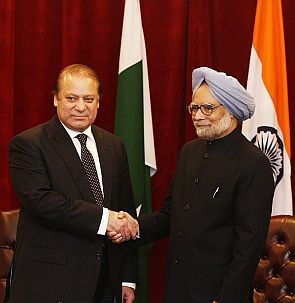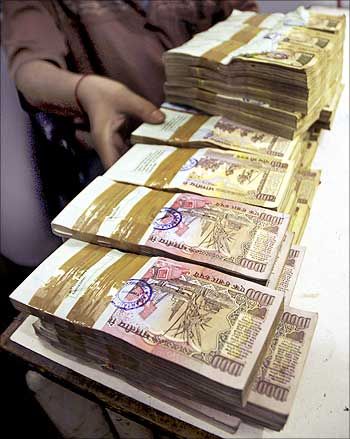 India is unlikely to take any bold move to improve its ties with Pakistan before the next year's general election, a top American intelligence official said on Wednesday.
India is unlikely to take any bold move to improve its ties with Pakistan before the next year's general election, a top American intelligence official said on Wednesday.
Pakistan Prime Minister Nawaz Sharif will "probably move cautiously to improve relations, however, and India also will probably not take any bold steps, particularly not before the Indian elections in spring 2014", said James Clapper, director of US National Intelligence.
Sharif, however, seeks rapprochement with India in anticipation of increased trade, which would be beneficial to Pakistan's economic growth, Clapper said during his testimony before the Senate Select Committee on Intelligence.
Clapper said Pakistan wants good relations with the US, but cooperation with America will continue to be vulnerable to strains, particularly due to Pakistani sensitivities toward perceived violations of sovereignty.
Sharif, he said, entered office seeking to establish good relations with the US, especially in areas that support his primary domestic focus of improving the economy.
"Sharif and his advisers were pleased with his late October 2013 visit to Washington. Pakistan was eager to restart a 'strategic dialogue' and its officials and press have touted results of the initial meetings of several of the five working groups that comprise the dialogue," he said.
Sharif's primary focus will be on improving the economy, including the energy sector and countering security threats, he said.
Sharif probably won the May 2013 election primarily because the previous government failed to improve either the economy or the generation of electricity, said Clapper.
Islamabad secured an International Monetary Fund programme in 2013.
Pakistan satisfied IMF conditions for fiscal and energy reforms under its three-year, $6.7 billion Extended Fund Facility, paving the way for a second disbursement of $550 million in December, he noted.
"However, continued use of scarce foreign exchange reserves by the State Bank of Pakistan to prop up the Pakistani rupee might make future disbursements difficult."
Clapper said Sharif seeks to acquire a more central policymaking role for civilians in areas that the army has traditionally dominated.
"His push for an increased role in foreign policy and national security will probably test his relationship with the new Chief of Army Staff, particularly if the army believes that the civilian government's position impinges on army interests," he said.
"However, Sharif has publically stated that the army and the civilian government are 'on the same page'," Clapper said.
Image: Prime Minister Manmohan Singh greets his Pakistani counterpart Nawaz Sharif during a meeting in New York last year
Photograph: Reuters











 © 2025
© 2025